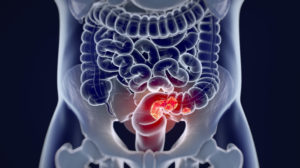Food and diet have long been used as natural treatments for human disorders. And controversially, many compounds have been identified as harmful and contributory to diseases such as cancer.
Particular dietary ingredients often trigger headache disorders such as migraines. An elimination diet can be effective when establishing migraine triggers. However, few (and controlled) studies on the particular role of diet in headache prevention have been done.
Some diets that have been reported to affect headaches beneficially include low fat, ketogenic, high folate, modified Atkins, and high omega-3/low omega-6.
The epigenetic diet, introduced by Hardy and Tollefsbol in 2011, is mainly considered for cancer prevention. It is based on the assumption that diet can modify the cellular epigenetic profile. It refers explicitly to dietary compounds found commonly in foods that have been shown to modify the epigenome resulting in better health. Examples include resveratrol in red grapes, genistein in soybean, and isothiocyanates in broccoli.
Folate, an essential micronutrient involved in one-carbon metabolism and DNA methylation, has been shown to have beneficial effects on migraines. Being methyl deficient means to be lacking sufficient levels of folate, choline, and methionine. Without these compounds, it has been evidenced that the epigenome has changed and induced abnormal DNA methylation.
One review assessed the epigenetic diet focussing on migraine, DNA methylation, and folate, a nutrient frequently mentioned as an essential element of epigenetic diets and also in migraine prevention.
Read the original publication of this study here: [Is an “Epigenetic Diet” for Migraines Justified? The Case of Folate and DNA Methylation]
This study aimed to assess the rationale behind the epigenetic diet and the findings associated with its application, including the migraine diet.

Is an “Epigenetic Diet” for Migraines Justified? The Case of Folate and DNA Methylation
The authors reviewed previous literature and research regarding migraine diet and focussed their study on Migraine and Diet, DNA Methylation in Migraine, and Folate and Its Role in DNA Methylation and Migraine Pathogenesis. They attempted to answer their question – Is an “Epigenetic Diet” for Migraines Justified?
An avoidance diet for migraine may be effective but eating certain foods is not specific for migraines because many other diseases include diet in their pathogenesis.
Results of studies showed that the methylation of some genes might be different for migraines. However, the variability of some genes involved in folate metabolism has been outlined to relate with migraine occurrence.
Do these outcomes together allow us to conclude that a diet rich in folate may be effective in migraines through the change of the DNA methylation pattern? This conclusion is not justified by the results of the studies performed so far.
Also, a migraine diet needs to be personalized to the individual epigenetic profile of the patient, which is unknown. So while nutrition can change a person’s epigenetic profile, how they do this in a regulated way is still open.
Takeaways:
- There is no substantial evidence that folate-rich diets are therapeutically effective for migraines.
- The term “epigenetic diet” is misleading because diets would affect the epigenetic profile most, if not all.
- The combined effect of folate and valproic acid in migraines needs to be investigated further, as well as an avoidance diet eliminating migraine triggers. This could help around 15% of the global population to treat their migraines.
You can read the original publication of this study here: [Is an “Epigenetic Diet” for Migraines Justified? The Case of Folate and DNA Methylation]





